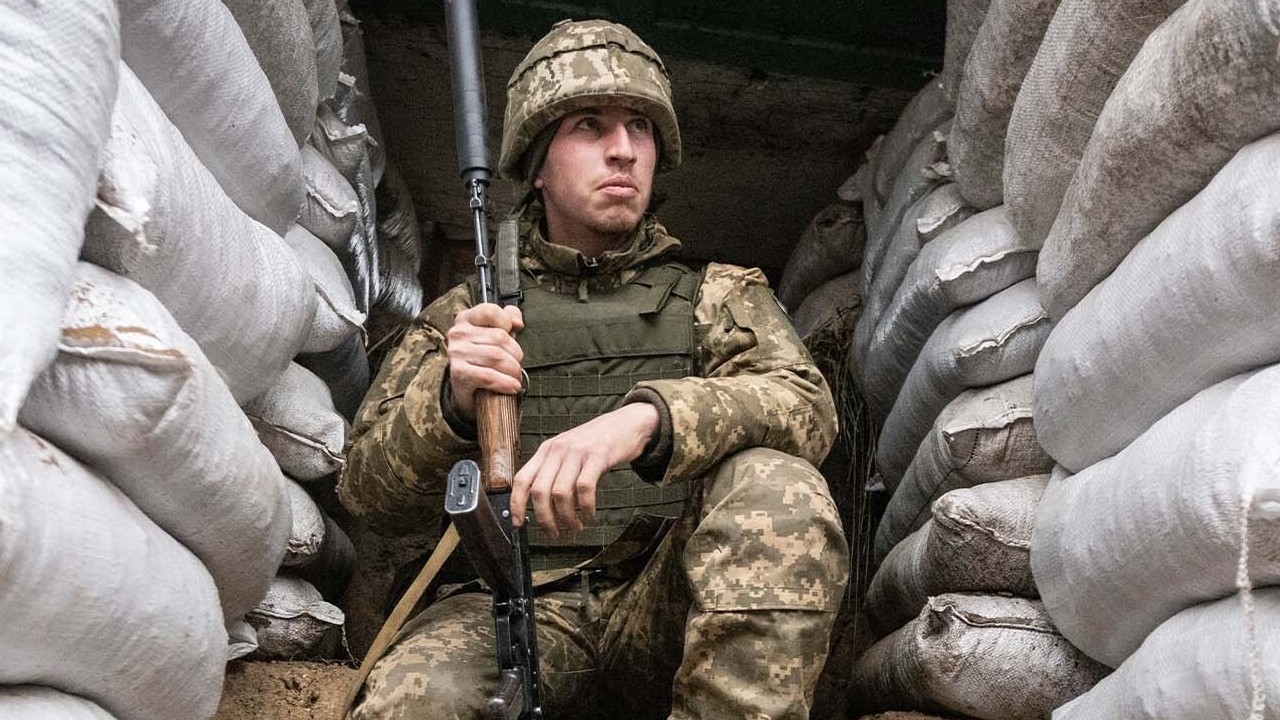
02:27
Amid Russian troop build-up in Belarus, Ukrainian soldiers doubt good result in Kremlin-US talks

Russia and the West continue to spar verbally over the situation in Ukraine. While both sides, despite numerous rounds of talks and negotiations, remain worlds apart, they share one common approach: realism. Herein lies the key to ending the crisis.
These past few weeks have seen a circle of demands by the West being met with counterdemands by Russia, and vice versa. Despite various diplomatic efforts, progress has not been made.
Both sides remain set in their respective points of view, which are diametrically opposed, and yet they share a common goal: influence in Ukraine.
It is no secret that Russia’s modus operandi has been a revisionist policy based on historical claims, spheres of influence and areas of interest. Not in terms of a Soviet Empire 2.0 but, rather, in the sense of political allegiance and the power to influence political decision-making processes in Ukraine (and Georgia and Moldova, for that matter).
Since 2007, President Vladimir Putin has repeatedly emphasised his agenda, that Ukraine ought to return to being under Russia’s influence, true to the argument of US president Jimmy Carter’s national security adviser Zbigniew Brzezinski, who once said: “It cannot be stressed strongly enough that without Ukraine, Russia ceases to be an empire, but with Ukraine suborned and then subordinated, Russia automatically becomes an empire.”
For the West, the aforementioned remains rightfully unacceptable. It still adheres to the Paris Charter of 1990, which ended the East-West conflict and enshrined principles for a foreign policy including the inviolability of borders, non-use of military force and free elections.
However, the West’s interest in Ukraine’s future is not based on sheer kindness. Instead, just as with Russia, political realism is the rationale for why the West itself has been attempting to incorporate Ukraine into the Western bloc and thus under its influence.
Military aid, and, above all, the United States’ offer during the Nato summit in Bucharest in 2008 for Ukraine to eventually become a member of the transatlantic security alliance, have exacerbated what Putin perceives as an encirclement policy, and detests.
All the while, from a European point of view, the importance of Ukraine remains limited, even though the public discourse suggests otherwise. Ukraine is no role model in terms of Western economic or political values.
It is a corrupt country, the second most corrupt on the continent (Russia being No 1), and is not, strictly speaking, a democracy. To compare the Ukraine situation, as some have, to Taiwan and demand equal support from the US is, therefore, intellectually dishonest at best.
And even the argument that influence could have the ability to improve the situation in Ukraine is somewhat preposterous, considering the “success” of the past two decades of Western democracy exports, be it via the North Atlantic Treaty Organization or the European Union.
But how can this conundrum be solved? How can the current spiral of escalation be halted? It will require interest-based and consistent action and concessions but, most importantly, neutrality.
Russia and the West must find a foundation to agree that Ukraine can remain open to both Russian and Western spheres of influence but that neither can claim to be drawing Ukraine into their orbit.
Such negotiations will take time and will not be easy, yet this approach appears significantly more desirable than the alternative of military conflict on European soil.
And even though Russia, with an economy comparable to Italy’s, can ill afford a war, one should not underestimate Putin’s determination and willingness to stand up to the West. As inconceivable as it may sound, he has the upper hand as he will always dominate the concept of escalation.
The West lacks the means to counteract Russia – outside of an outright military confrontation, which no Western country is willing to engage in over Ukraine for the aforementioned reasons – and the Kremlin knows it.
This crisis is, hence, not developing on a level playing field, and the fact that Russia has essentially been dictating the whole situation while the West is reacting by shrugging its shoulders is a testament to this.
However, if Russia were to accept the rule of neutrality and adhere to it, the West, in return, should promise that Ukraine will not become a Nato member – a pivotal signal to the Kremlin that the West is inclined to correct its course after decades of expansion eastward, and frankly not a loss for Nato’s security architecture.
The disregard for realpolitik within the West, particularly within the EU, is the main reason for the widespread political helplessness leaders have been displaying thus far. It is, therefore, time to cease the diplomatic charade and attempt a different approach.
Thomas O. Falk is a UK-based independent journalist and political analyst